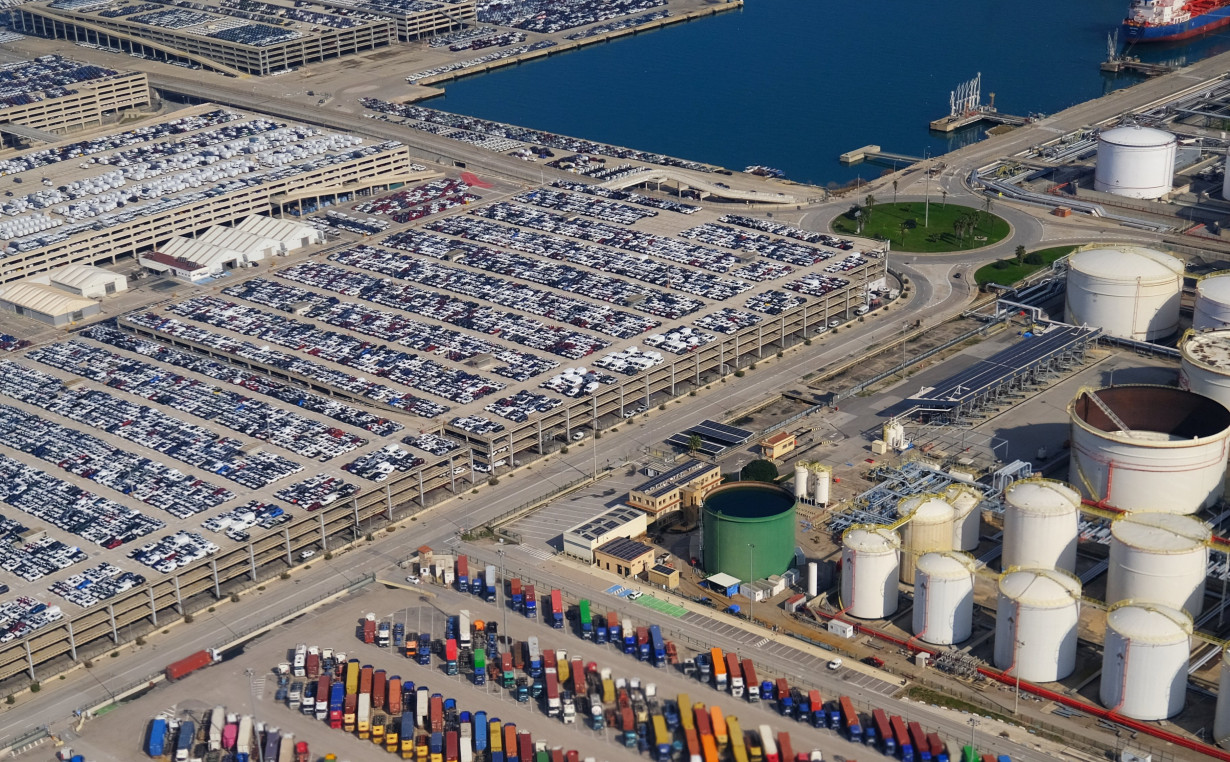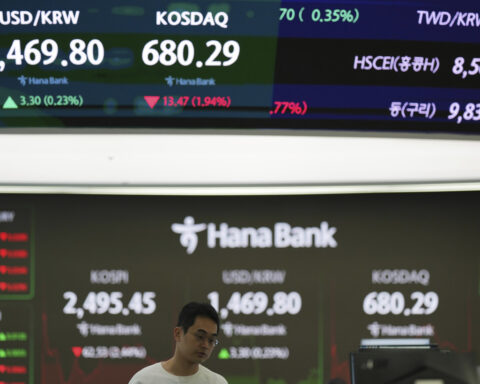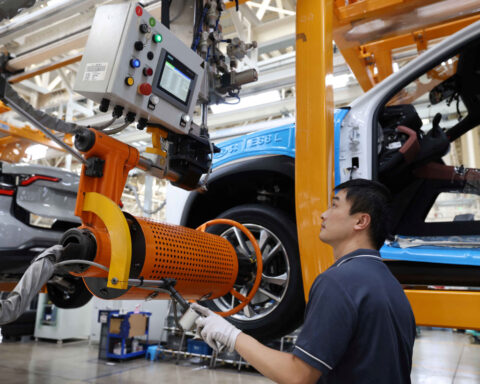By Victoria Waldersee
BERLIN (Reuters) - Car-carrying ships have sent more cargo from Europe and China, Japan and Korea to the United States in the first months of the year than last year, shipping data showed, in a sign of companies front-loading shipments ahead of looming tariffs.
A total of 33 so-called roll on, roll off ships - designed for wheeled cargo and mostly carrying new cars - left Europe for the U.S. in February this year, up from 28 in February 2024, according to data analytics firm Esgian, which monitors shipping routes and ports worldwide.
Those ships will have been able to carry around 30,000 more vehicles across the Atlantic, said Stian Omli, senior vice president at Esgian.
From Japan, China and Korea, the number of car-carrying ships leaving for the U.S. rose by eight in January from last year's levels to 69. Some of February's shipments were likely still on their way to the United States, Omli said, expecting the total monthly figure to be higher than last year's.
"Evidence points to increased activity from Europe and the far East ... those two regions represent the major export regions to the U.S.," Omli said.
The United States' announcement of a 25% tariff on auto imports rippled through auto stocks on Thursday, with governments from Ottawa to Paris threatening retaliation even as car companies from BMW to Volkswagen pleaded for deals to avert a trade war.
While some carmakers have announced plans to expand U.S. production, others have proceeded with more caution, with executives expressing doubt in private over whether threatened tariffs would indeed come into force.
In the past week, the number of car carriers bound for U.S. ports from around the world rose 5% to 89, Esgian's data showed.
The new levies could add thousands of dollars to the cost of an average vehicle in the U.S., contradicting President Donald Trump's promises to combat consumer inflation and further dampening demand at a time when the sector is already struggling to manage the transition to electric cars.
(Reporting by Victoria Waldersee in Berlin; Editing by Matthew Lewis)

 Trump has begun another trade war. Here's a timeline of how we got here
Trump has begun another trade war. Here's a timeline of how we got here
 Canada's leader laments lost friendship with US in town that sheltered stranded Americans after 9/11
Canada's leader laments lost friendship with US in town that sheltered stranded Americans after 9/11
 Chinese EV giant BYD's fourth-quarter profit leaps 73%
Chinese EV giant BYD's fourth-quarter profit leaps 73%
 You're an American in another land? Prepare to talk about the why and how of Trump 2.0
You're an American in another land? Prepare to talk about the why and how of Trump 2.0
 Chalk talk: Star power, top teams and No. 5 seeds headline the women's March Madness Sweet 16
Chalk talk: Star power, top teams and No. 5 seeds headline the women's March Madness Sweet 16
 Purdue returns to Sweet 16 with 76-62 win over McNeese in March Madness
Purdue returns to Sweet 16 with 76-62 win over McNeese in March Madness








